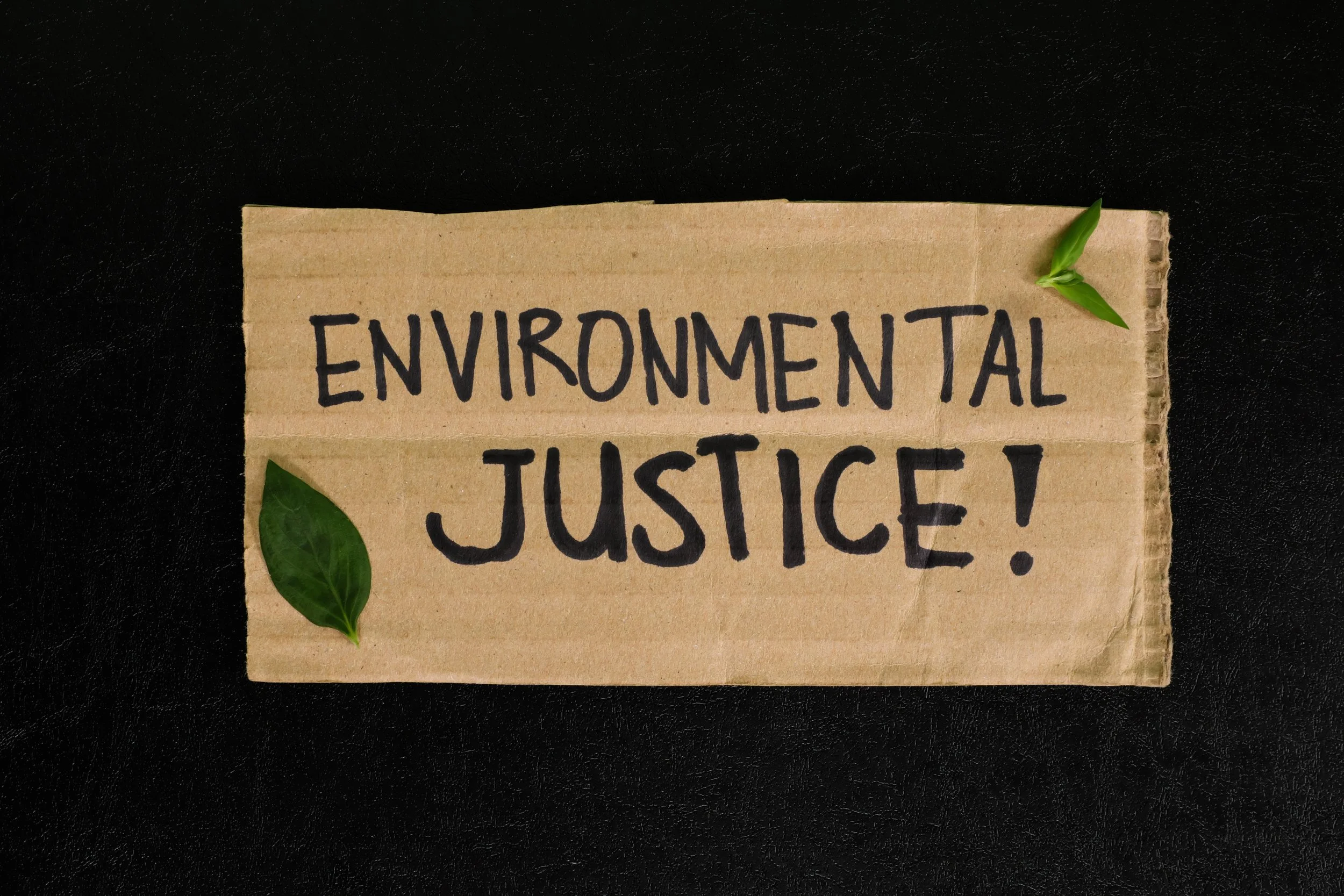Environmental justice ensures that everyone, regardless of income, race or national origin, has the same environmental protections and can meaningfully participate in policies that shape their communities. In reality, low-income communities and communities of color in the United States have faced a long history of racial inequity and environmental injustice. Decades of research show that people of color are disproportionately exposed to higher levels of pollution compared to their white counterparts. For example, Black Americans are 75 percent more likely to live near toxic oil and gas facilities. Studies since the 1980s have shown that race is the leading factor in siting hazardous facilities in the United States. Racist policies like redlining, underfunding of public services and political disenfranchisement pave a “path of least resistance” for companies to locate environmental hazards. This pattern of environmental injustice is a systemic risk that exacerbates the climate crisis and furthers racial inequities.
Companies are increasingly vulnerable to material risk associated with poor management of environmental justice. Unprecedented commitments from the Biden administration and other federal agencies to make environmental justice a priority have promised to “hold polluters accountable.” States have also seen a strong uptick in recent environmental justice legislation. Failure to adequately assess, mitigate and remediate impacts on environmental justice communities often results in litigation, project delays and significant fines for companies. For example, chemical manufacturers have recently faced litigation regarding decades of PFAS contamination, including a $10 billion settlement for 3M in 2023, and a $65 million settlement for Honeywell and Saint-Gobain in 2021. As with most pollutants, Black and Latinx communities are disproportionately exposed to dangerous levels of PFAS.
Energy infrastructure projects that do not properly address environmental justice impacts face increasing material risks, as well. Pipelines like Enbridge Line 5 and the Mountain Valley Pipeline run through communities of color and violate the rights of Indigenous Peoples. Both pipelines have been connected to significant fines, litigation, community opposition and project delays. Even financiers of these projects face reputational risks and face calls to cut ties with clients that perpetuate environmental injustice.
Environmental justice impacts, from legacy water contamination to the construction of new pipelines, pose increasing material risks to companies and their investors, as emphasized in the recently published Business Case for Addressing Environmental Justice. Investor Advocates for Social Justice (IASJ) engages with companies whose practices further systematic racism and environmental injustice, calling on them to improve their climate policies and risk management systems. IASJ proposals have prompted new disclosure from companies, including a Racial Equity Audit at Dow and environmental justice reporting at Southern Company.
Building on years of engagement, IASJ affiliates filed a 2024 shareholder proposal with Honeywell requesting the company to conduct an environmental justice audit. Honeywell is at the center of multiple controversies and lawsuits alleging environmental damages in communities of color. A 2022 report found that 46 percent of Honeywell’s water pollution is located in communities of color. IASJ urges all shareholders to support the proposal to help Honeywell avoid adverse impacts on environmental justice communities while reducing reputational risk and liabilities.
Jillianne Lyons
Program Director, Investor Advocates for Social Justice


